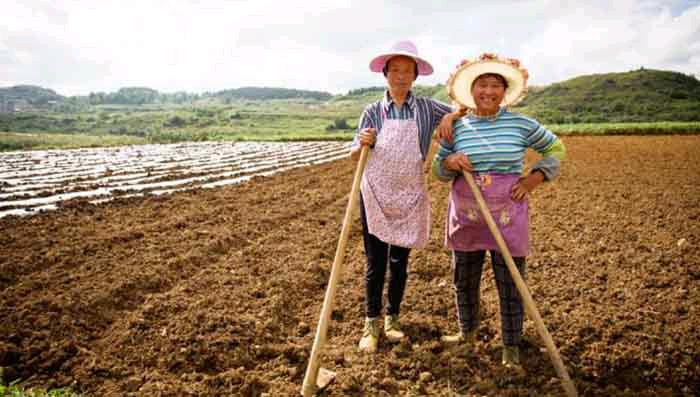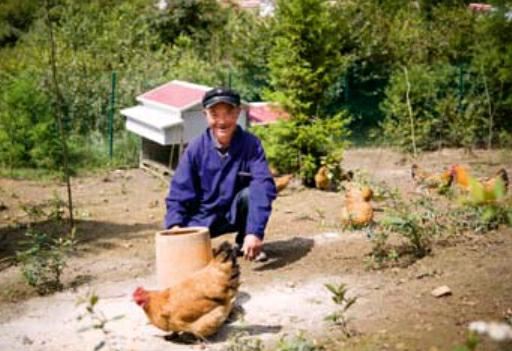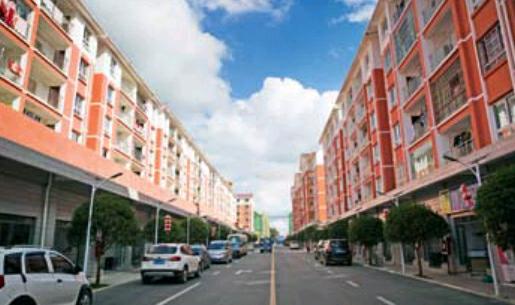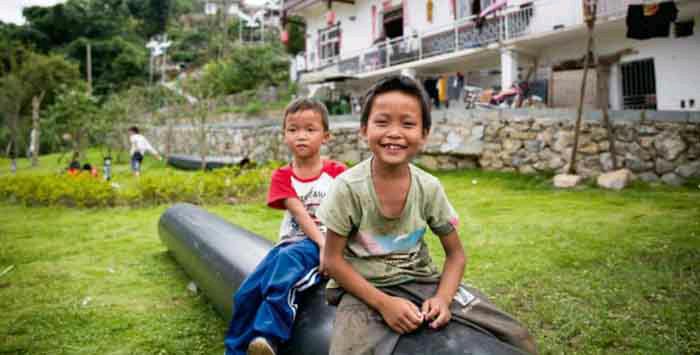Guizhou:Reforming Away from Poverty
by+Li+Zhuoxi
Since the 18th National Congress of the Communist Party of China (CPC) in 2012, despite grave difficulties both at home and abroad, China has risen to the challenge and worked hard to press ahead, driving forward sustained, healthy economic and social development, under the leadership of the CPC Central Committee with Xi Jinping at its core.
During the past five years, China has achieved major progress in finishing building a moderately prosperous society in all respects, made important strides in deepening reform, and continued to exercise law-based governance. All of these achievements show that Chinese people have the courage, ingenuity, and ability to overcome any difficulty or hardship, and that there is even better development ahead for China.
Particular historical and geographical factors have cornered Guizhou Province in southwestern China into a grim situation. As described in the Human Development Report 2005 released by the United Nations Development Programme (UNDP),“If Guizhou were a country, it would follow Namibia on the human development index.”
By early 2015, 6.23 million Guizhou residents remained below the poverty line, and 50 of the 88 counties in the province were designated as key poverty alleviation targets in China. For many years, Guizhou has been known for its poverty.
Naturally, people across China have been contributing to lifting Guizhou out of poverty as they work towards the goal of mak- ing China a moderately prosperous society in all respects by 2020.
In 2015, a reform plan for a prefecture-level city in Guizhou caught the attention of the central government of China. Liupanshui City made breakthroughs in furthering its rural reform via“changing resources into assets, changing capital into equities and changing farmers into shareholders.” On November 27, 2015, the citys fruitful results were cited by Xi Jinping, general secretary of the CPC Central Committee, at a central work conference on poverty alleviation and development: “We should reform and renovate to activate resources of land, labor, capital and natural scenery in poverty-stricken areas to kindle profits while preserving the ecosystem like what they did in Liupanshui, Guizhou.”
Collective Property Rights
In 1978, a new term began spreading across China: “Household contract responsibility system with remuneration linked to output.” It refers to contracting land for household operation, which greatly liberated the productive forces in rural areas, mobilized production enthusiasm and brought earth-shaking changes to rural China. Intensive and meticulous farming based on households miraculously managed to feed 22 percent of the worlds population with only seven percent of its land.endprint
However, with the continuous development of rural areas, new problems have emerged. Household production hardly meets the needs of the large-scale, organized and market-oriented development of rural economics and is only roughly connected with the market. In recent years, potential solutions to these problems have been on many minds.
In Miluo Town of Guizhous Shuicheng County is a company named Runyongheng that grows kiwi fruit on 10,000 mu (each mu is equivalent to 0.067 hectares) of land. Wang Shunyou from Ejia Village joined with his five mu of land, with an annual guaranteed income of 600 yuan per mu. “This figure will increase year by year: The second five-years will be 1,300 yuan, and the third five-years 1,900 yuan.” For Wang Shunyou and his family, it has proved more cost-effective than their previous crop of corn, which would make less than 500 yuan per mu.
The guaranteed income has attracted many villagers in Ejia to become stakeholders. At present, a total of 3,062 people from 875 households have joined up, each of whom can earn an average of 4,300 yuan annually from their shares.
Li Nan from Xiushui Village in Puding County didnt expect any returns from his barren but arable land because he worked outside the village, which has seen booming tourism thanks to the support of the Anshun Xingwei Group. A total of 1,100 villagers bought shares of 5,200 mu of arable land under the management of the village-level company, and they annually earn 1,000 yuan per mu as a dividend.
In 2016, the annual income of Xiushui Eco-Tourism Park reached 17 million yuan, and profits were paid to villagers and used to reconstruct the village.
The conversion of resources into assets has created opportunities for the village to share the fruits of its development with villagers, capitalize on long-wasted resources, and transform everything into a potential source of wealth.
Industrial Platform
Building modern agriculture and changing modes of agricultural development are the focus of Chinas agricultural development in the modern era.
Guizhou Provinces success in turning resources into assets, capital into equities and farmers into shareholders lies in its focus on adjusting patterns of agricultural progress in rural areas as it becomes more industrialized.endprint
At 53, Dong Dongxian works in the field belonging to the local cooperative known as Duichangsha in Caiguan Town, Xixiu District of Anshun City. A few years ago, after her husband was injured at a construction site, Dong became the sole breadwinner for the family, but still struggled to support her family by growing crops.
“I used to grow corn and potatoes, which barely earned anything,” recalls Dong. “Everything is different today. We follow what is in demand with the cooperative and grow seasonal vegetables, which earn a lot more, and we no longer have to do any marketing.”
In early 2017, Guizhou Green Field Co., Ltd. was founded. The company contracts with cooperatives and arranges orders for production in accordance with the needs of the market and low- income families, targeting both farmers and the market.
Duichangsha Cooperative, where Dong Dongxian works, is one client of Green Field.
Green Field deals with all sorts of agricultural cooperatives and enterprises, offering guaranteed prices in the off season and market purchase prices during the peak season to attract more impoverished families to participate in production. The approach has inspired 827 low-income families to join a team growing vegetables and raising chickens, bringing each an annual average income increase of 20,000 yuan.
Crops cannot flourish without fertile land. Reform focused on energizing such a fertile land has produced brilliant growth. Over the last two years, pilot reform campaigns in Guizhou have benefited 524,000 poverty-stricken families, increasing their per capita annual income by an average of 2,059 yuan. In 2016 alone, Guizhou lifted more than 1.2 million people out of poverty.
The provinces reform experience has established a new model for agricultural management and blazed a new trail for targeted poverty alleviation, making Guizhou an engine pulling even more impoverished people up.endprint
China Pictorial2017年10期
